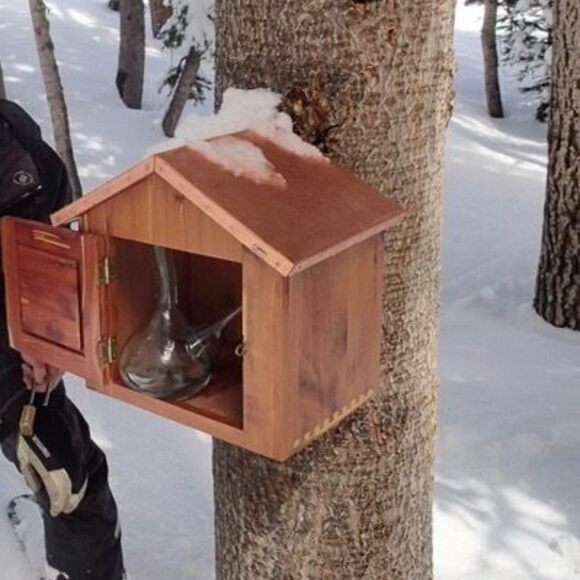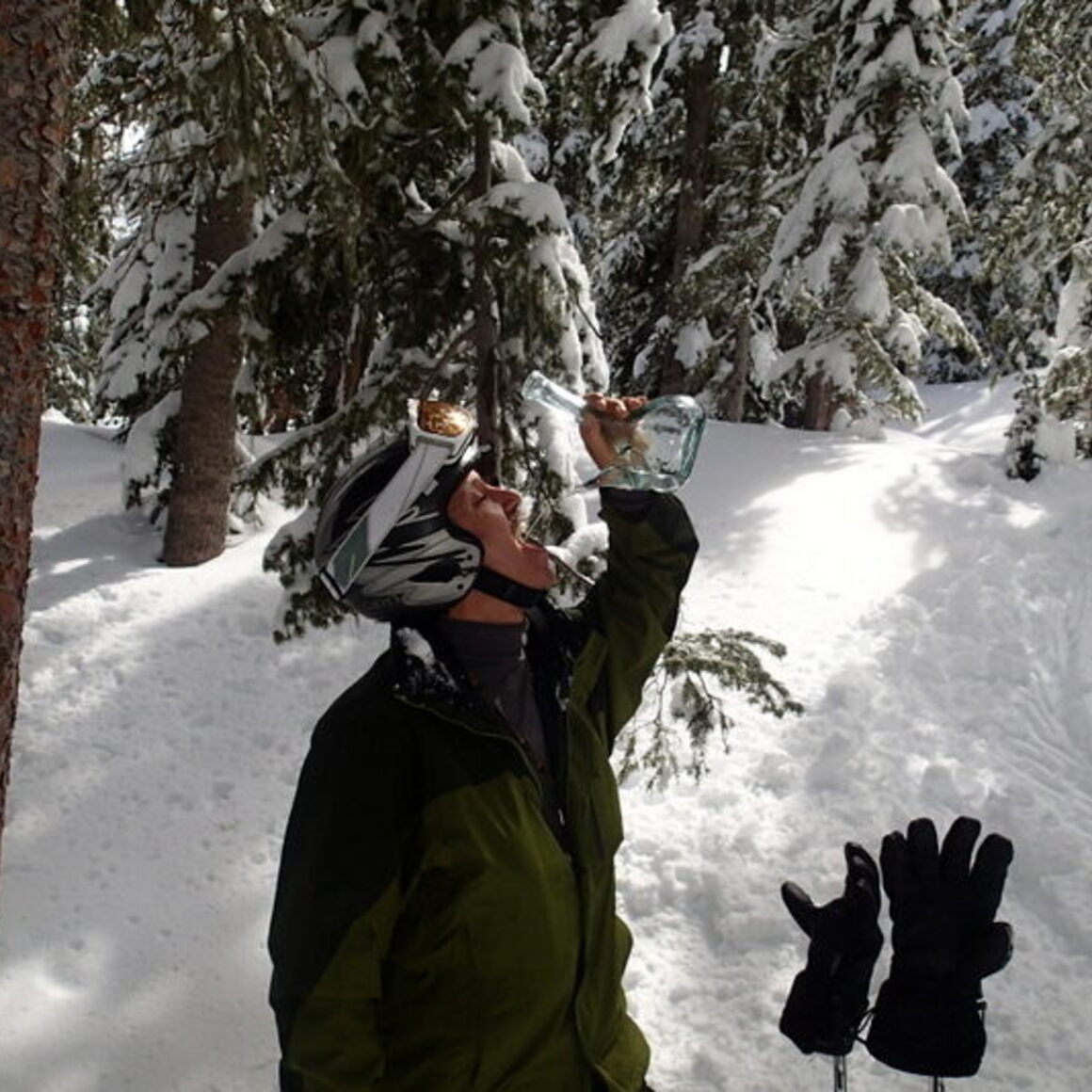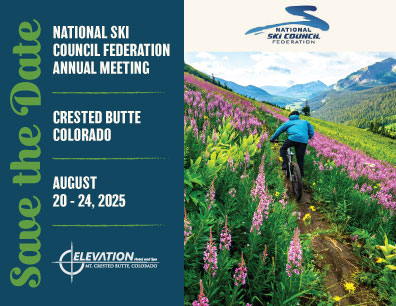
The legend of the Martini Tree begins in the winter of 1958-1959 at Ski Valley, a resort and school located in the Sangre de Cristo Mountains, just north of the city of Taos, New Mexico. During a ski lesson, a woman was struggling with getting down the slopes due to bad lighting conditions. After floundering, she lost her confidence and became too afraid to make it down the rest of the mountain. To calm her nerves, Ernie Blake, her teacher and the owner of Ski Valley, sent his son to retrieve a dry martini, which came in a Spanish porrón, a glass pitcher with a long spout for easily pouring a drink into one’s mouth. The woman downed the drink, overcame her fears, and skied perfectly down the mountain. Encouraged by the effects of liquid courage, Blake stationed several porróns around the slopes to aid anxious skiers.

By 1980, there were a documented four “martini trees” at Taos, all of which were evergreens that had been demarcated by yellow tape. The porróns were simply nestled into the snow below. By this time, the word was out. Ski magazine reported on the school’s unique technique: “One of the elite ski clubs of America is called HAMS, or High Altitude Martini Skiers.” Membership in HAMS was earned by drinking a martini in an unpressurized environment, at an altitude of at least 11,000 feet, with at least one limb touching the ground.
Today, martinis are no longer buried in snow, but the Martini Tree tradition lives on in a new form. At the completion of a week-long course at the Ernie Blake Snowsports School, students are shepherded into the woods. There, an instructor grants them access to a birdhouse-like lockbox mounted to a tree. Inside, martinis await everyone over the age of 21. Today, the resort also employs someone to check IDs.
Need to Know
Obviously, exercise caution and moderation when combining alcohol with skiing down a mountain.
Reposted from AtlasObscura.com via Facebook



